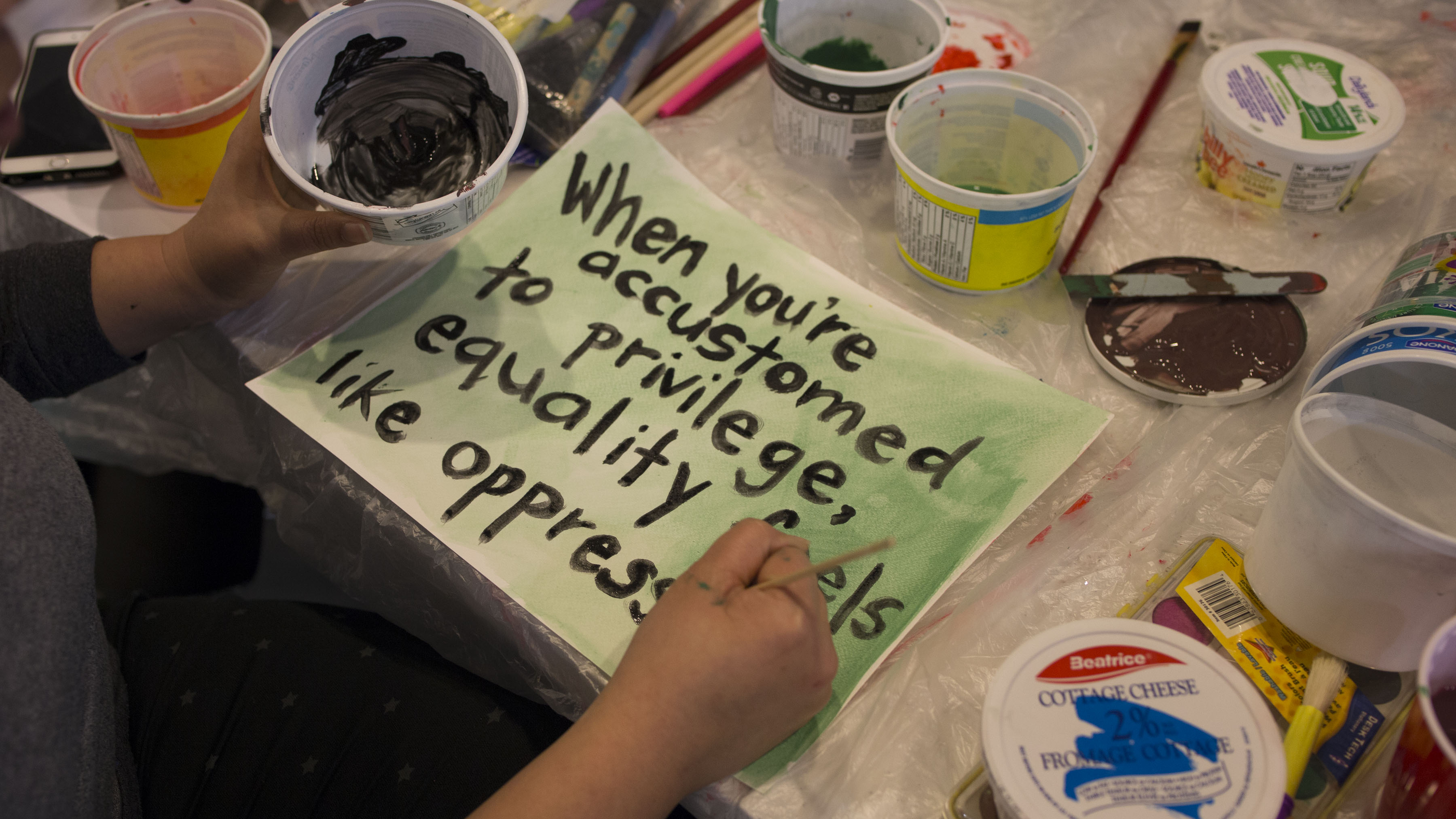Winnipeg conversation series 13 Fires hosted a drop-in event at the U of M Sunday afternoon in response to “It’s okay to be white” posters that were posted around the Fort Garry campus overnight Oct. 31.
The event, “Art Action: Mobilizing a response to ‘It’s okay to be white,’” featured discussion about “how to be actively anti-racist” as well as a poster making session.
Anny Chen, a 13 Fires organizer, said the event was meant to provide an open space for dialogue.
“My expectation [of today] was just a come and go spot for people to be able to talk through some of what’s happening and to make some art around it and that there’ll be further responses that can happen from this,” she said.
The group formed in 2015 after speakers at the Our Summit: Local Racial Inclusion Summit, which took place in September of that year, recommended community members within the city continue productive conversations on race.
Sunday’s event addressed anxieties that people felt with the appearance of the posters.
“I became really concerned about the posters’ power to influence people that are not sure where they stand when it comes to white supremacy,” Chen said.
Chen noted the posters were both threatening to racialized groups on campus and also a possible recruitment tool.
“It’s dangerous because it becomes this recruitment tool and this identifier and this locus of belonging for people who may be currently in a neutral or slightly oppositional space to anti-racism,” Chen said.
Much of the discussion focused on what it means to be a non-racist versus an anti-racist.
“To me the difference between a non-racist and an anti-racist is action,” Chen said.
Chen provided examples of how to be anti-racist within the university.
“To be actively anti-racist in the university system or in a classroom might be countering people’s ideas,” Chen said, “or calling out microaggressions, or if people share something, a way of viewing something or a policy you think is discriminatory, that you would say something about it.”
The School of Fine Art Students Association (SOFA) is also planning a response to the posters.
Annie Beach, SOFA co-president, said, “SOFA have decided to counteract the violent ‘It’s okay to be white’ posters with posters that have positive messages.”
SOFA plans to produce a series of screen-printed posters featuring messages created in consultation with the Muslim Student Association and Indigenous students.
“We hope that these posters can be available to students free of charge where they can hang them where they need them,” Beach said.
Organizers are aiming to meet regularly again in 2019 and create spaces for conversations that foster understanding and “anti-racist action.”
“We want to make sure that white supremacist ideas aren’t taking further hold and we want to make sure that we’re working in anti-racist and anti-aggressive ways,” Chen said.

